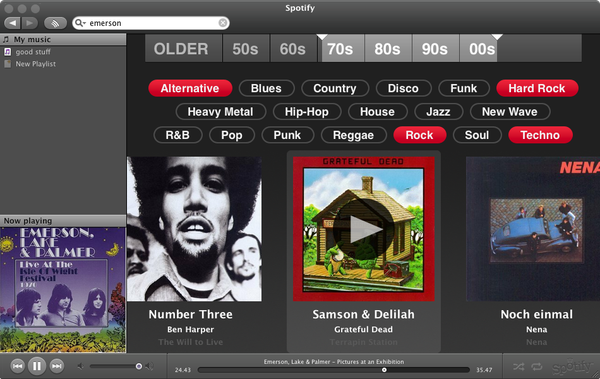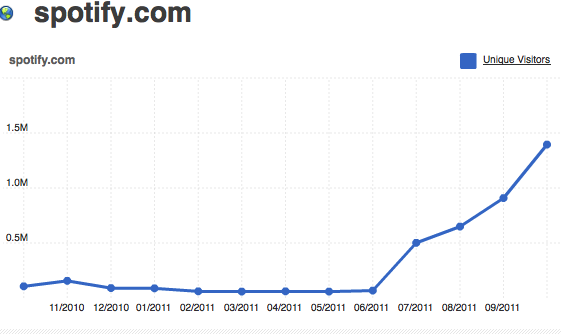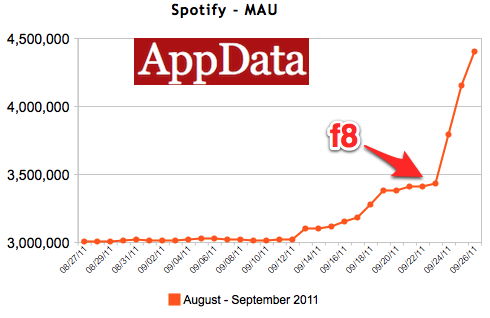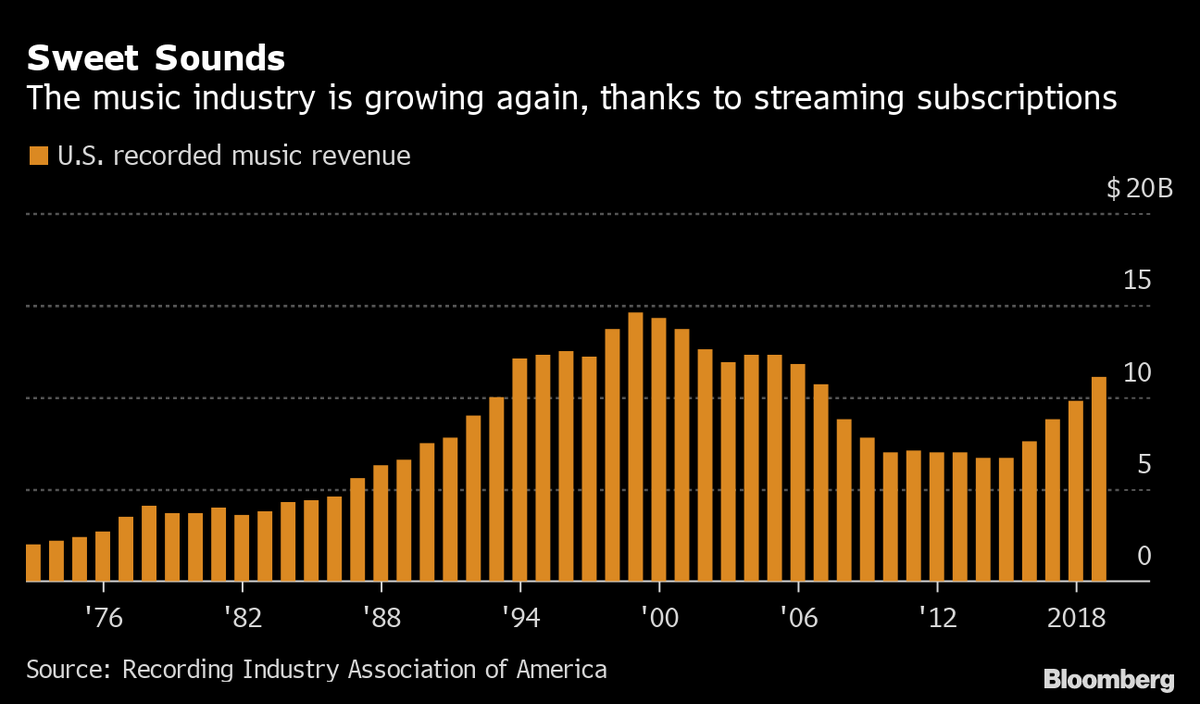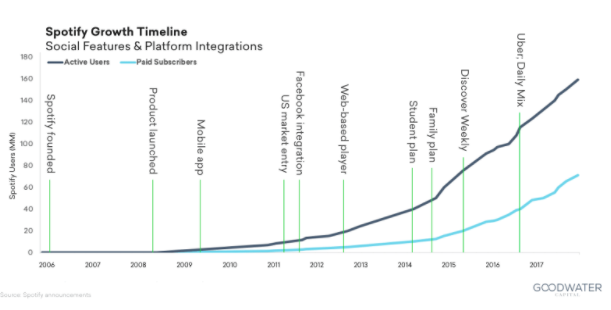• €1.89b in revenue
• 299m monthly active users
• 138m subscribers
• 60m songs
• 1.5m podcasts
This is the story of how two Swedish entrepreneurs changed audio.
(Megathread)
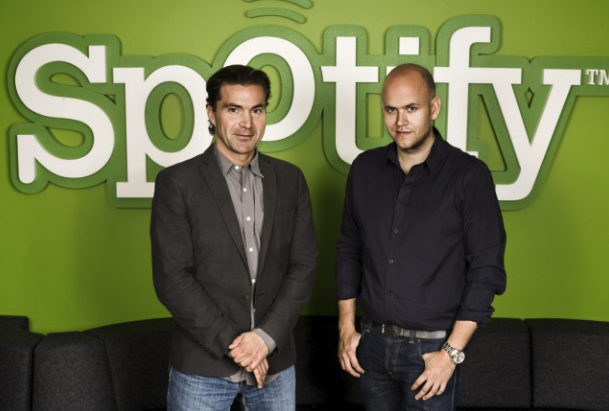
What was this epiphany about? Piracy.
Why? A fantastic product that beat out existing players on every vector:
• music catalogue
• product features
• pricing model
• user choice
• legality
But how the hell did Spotify get its music? In 2008, record labels were going through terrible times and Ek leveraged the fact that they had nothing to lose.
• Sony → 6%
• Universal → 5%
• Warner → 4%
• EMI → 2%
• Merlin → 1%
Then came the US launch.
Just as they had in Europe, Spotify leveraged momentum, bloggers and influencers to gain PR and generating hype.
This wasn't a thing before. Files were stored locally and sharing them was a pain in the ass.
Spotify is a market expander. The big bet is they can increase the market of new listeners (or return those lost to piracy) through a freemium model.
One famous example was that of Taylor Swift’s album ‘1989’. A week before its launch, Swift pulled her entire catalog off of Spotify.
Each time a high-profile artist got into a public feud with Spotify over royalties, there was media. And, as @RyanHoliday would say, controversy is the best kind of media.
Spotify may have not helped each and every individual artist but… as @nbashaw explained in his newsletter, Spotify’s bundling of music helped the music industry as a whole.
A lot.
divinations.substack.com/p/bundle-magic
The day Spotify finally went public (April 3, 2018), its stock was worth $147.92. On May 15th, 2020, the number was $158.83.
Yesterday it closed at $256,80, with a peak of $278.24 on July 10th, 2020. What happened?
According to the last quarterly earnings, the lockdown didn't affect Spotify that much and it is now fully recovered.
On May 22nd Spotify paid Joe Rogan a reported $100 million in exchange for distribution rights of his podcast.
But why? Why make the move to podcasts?
The perfect example is iTunes and Apple Music. They don't mind giving it away for cheap.
For every song streamed, Spotify needs to pay 70% to labels. But not for podcasts.
Owning audio is great. But owning audio where you get increasing returns to scale because you don't pay royalties linearly is MUCH better.
Podcast creation tools → Anchor, Loudr
Original content → Gimlet, The Ringer, Parcast
Licensing deals → Joe Rogan, Michelle Obama
But that was just the start.


